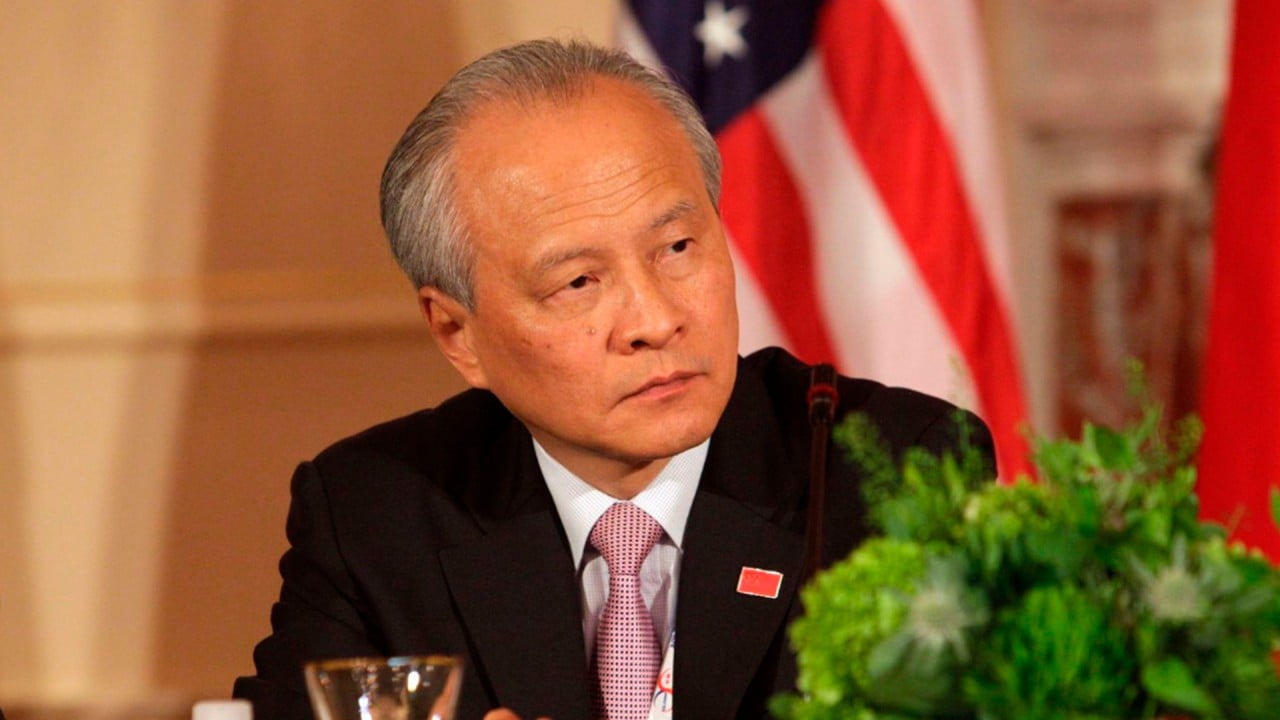
China sanctions US defence companies over Taiwan arms deal
- Beijing bans Chinese companies and individuals from doing business with five American firms in response to Washington’s ‘gravely wrong actions’
- The decision follows US approval of a US$300 million deal with Taipei to upgrade the island’s tactical information system
The decision was made in response to “gravely wrong actions” by the United States, the ministry said.
Final Pentagon bill features Taiwan, Aukus and counters to China’s influence
“[The latest arms sales and sanctions] seriously harm China’s sovereignty and security interests, undermine the peace and stability across the Taiwan Strait, and violate the legitimate and lawful rights and interests of Chinese companies and individuals,” the statement said.
“We urge the United States to abide by the one-China principle … stop arming Taiwan, and stop targeting China with illegal unilateral sanctions.
“Otherwise there will be a strong and resolute response from China.”
The Pentagon said the “follow-on life cycle support” for the command, control, communications and computers (C4) capabilities would improve Taiwan’s ability to “meet current and future threats by enhancing operational readiness” and sustain existing system capabilities that provide a secure flow of tactical information.
Beijing did not specify which US sanctions it was referring to when announcing the latest measures against American companies.
However, the US imposed sanctions last month on more than 250 individuals and entities, including several in China, for what it said was facilitating Russia’s evasion of sanctions imposed by the West over the war in Ukraine.
In November, 130 entities, including three in China, were sanctioned by the US for allegedly sending high-priority dual-use goods that Moscow relies on for its weapons systems.
China expressed strong dissatisfaction and opposition to the US decisions, which it said were based on “so-called Russia-related excuses”.
Why Taiwan arms sales, in place for decades, still spark US-China tensions
Beijing views Taiwan as part of China to be reunited by force if necessary. Washington is a strong supporter of Taiwan but like most countries does not recognise the island as an independent state. However, it is opposed to any attempt to take the island forcibly.
Washington is also legally bound under its 1979 Taiwan Relations Act to help the island protect itself by providing “arms of a defensive character”.
Taiwan’s defence ministry said the latest transaction would enable the joint combat command and control systems to maintain a common operational picture.
Raymond Kuo, director of the Taiwan Policy Initiative and a senior political scientist at US-based think tank Rand Corporation, said an improved military communication network was critical for the island to have an effective defence.
“The C4 upgrade will allow Taiwan to distribute its forces more effectively while still maintaining command and control, as well as hardening those communications against disruption or interception,” he said.
Beijing’s dilemma if DPP wins Taiwan election: what level of response?
Former People’s Liberation Army instructor Song Zhongping said the latest sanctions were similar in scale to previous ones triggered by arms sales to Taiwan and showed that Beijing would never compromise on its core interests.
“Once certain defence contractors’ actions constitute a threat to China’s national interest and national security, Beijing will impose reciprocal sanctions against them,” he said.
By imposing the sanctions, China hoped these companies would realise that jeopardising China’s national security would inevitably lead to the loss of the Chinese market, Song added.
Even though US defence companies usually did not do direct business in mainland China, the sanctions carried “substantial deterrence”, he said.
“These companies may also have civil businesses, and sanctions are not only imposed on parent companies but also their branches and subsidiaries, prompting them to take into account their global interests, not just in the arms business,” Song said.
Data Link Solutions is the leading supplier of the Link 16 system, which Taiwan’s military uses to bring together the data links of its US-made weapon systems.
Song said expanded data links could widen the range of US weapons and equipment available to the island’s military, posing a national security threat to the mainland.
Beijing’s sanctions come less than a week before more than 19 million Taiwanese are expected to cast ballots in presidential and legislative elections that will likely shape US-China relations and cross-strait dynamics in the years to come.


